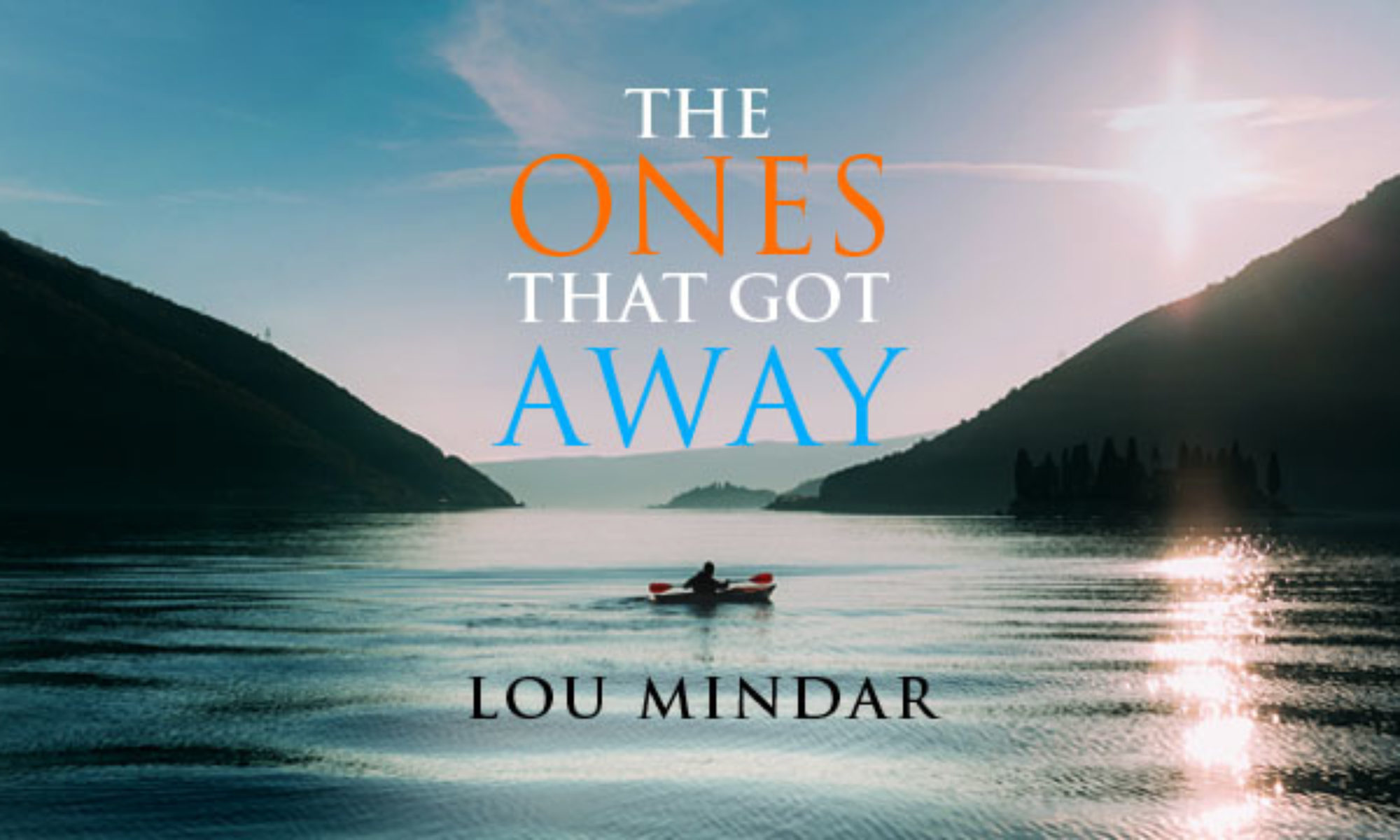 As you’ve probably heard, 2020 was a strange year. In addition to a worldwide pandemic that changed all of our lives, we had an economy in ruins, country-wide protests for equal rights for black Americans, and a dysfunctional government that became more and more authoritarian as the year progressed. As a result, my reading habits were a bit different than usual.
As you’ve probably heard, 2020 was a strange year. In addition to a worldwide pandemic that changed all of our lives, we had an economy in ruins, country-wide protests for equal rights for black Americans, and a dysfunctional government that became more and more authoritarian as the year progressed. As a result, my reading habits were a bit different than usual.
For one, I read a lot more nonfiction in 2020, especially books about Donald Trump and his attack on our government. As you’d expect, some were good, some not so good, and some were exceptional.
I also consumed many more Audible Originals (AO) in 2020. These are audio books produced by Audible and available only to Audible members. Last year, I debated whether or not to include AO with other books. This year, I decided to include them. Even so, none of them made it into the top ten. There were several excellent AO books (along with a few duds), but in the end, the best ones fell just outside the top ten.
In the interest of transparency, the two best books I read this year are not on the list. Those books are 11-22-63 by Stephen King and Deadwood by Pete Dexter. I re-read both books this year, and since both were on previous top ten lists, I didn’t include them here. However, they are both excellent and highly recommended.
Unlike previous years, I did not read any books this year that I was really disappointed in. To be sure, I read a few books I didn’t like, but I wasn’t disappointed in them the way I have been in some books in the past. Part of that is that I didn’t have high expectations for the books I ended up not liking.
Without further ado, here are the ten best books I read in 2020:
 10. The Rise of Theodore Roosevelt by Edmund Morris – What our country went through over the past four years with Donald Trump had me thinking about the purpose of government. I heard historian Heather Cox Richardson mention that the purpose of our government was viewed differently by Abraham Lincoln than it ha been by any president before him, and that his views were, in essence, handed down to Theodore Roosevelt, and then to his cousin, Franklin Delano Roosevelt. I found this intriguing, and the comment reminded me that I had heard great things about Morris’ books on Theodore Roosevelt (he wrote three), but I had never read them. Finally, I took the time to read the first of the three, The Rise of Theodore Roosevelt, and was not disappointed. If you’re interested in reading the book, let me warn you, The Rise of Theodore Roosevelt is extremely detailed. Some would say, way more detailed than necessary. While the book did get bogged down from time to time with too many details, overall, I came to enjoy the little facts, comments, and interactions that, while not necessarily moving the story forward, added color and depth to an already interesting story. If you read it, give yourself some time. The Rise of Theodore Roosevelt is long (816 pages)
10. The Rise of Theodore Roosevelt by Edmund Morris – What our country went through over the past four years with Donald Trump had me thinking about the purpose of government. I heard historian Heather Cox Richardson mention that the purpose of our government was viewed differently by Abraham Lincoln than it ha been by any president before him, and that his views were, in essence, handed down to Theodore Roosevelt, and then to his cousin, Franklin Delano Roosevelt. I found this intriguing, and the comment reminded me that I had heard great things about Morris’ books on Theodore Roosevelt (he wrote three), but I had never read them. Finally, I took the time to read the first of the three, The Rise of Theodore Roosevelt, and was not disappointed. If you’re interested in reading the book, let me warn you, The Rise of Theodore Roosevelt is extremely detailed. Some would say, way more detailed than necessary. While the book did get bogged down from time to time with too many details, overall, I came to enjoy the little facts, comments, and interactions that, while not necessarily moving the story forward, added color and depth to an already interesting story. If you read it, give yourself some time. The Rise of Theodore Roosevelt is long (816 pages)
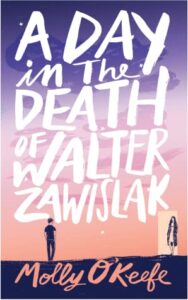 9. A Day in the Death of Walter Zawislak by Molly O’Keefe – All I knew about this book before I read it was what it said in the book’s description. I can’t remember who recommended the book to me, although I’m fairly certain it was recommended. Otherwise, it would not have been very likely that I would have read it. It’s just not a book that would have come up on my radar. However, I learned about it, I’m glad I did. In A Day in the Death of Walter Zawislak, author Molly O’Keefe tells a story, not of redemption or second chances, but of seeing our lives in a new perspective. As the protagonist, Walter, is about to die, he is given the opportunity to relive one day of his life. Problem is, Walter doesn’t want to relive any day of his life. He feels he’s wasted his life and doesn’t want to relive any specific day. Even the thing he cherishes most–his marriage to Rosie who predeceased him–doesn’t inspire a certain day to relive. With the help of Peter, a kind of benevolent angel of death, Walter comes to see that he didn’t waste his life, and helps him to choose which day to relive.
9. A Day in the Death of Walter Zawislak by Molly O’Keefe – All I knew about this book before I read it was what it said in the book’s description. I can’t remember who recommended the book to me, although I’m fairly certain it was recommended. Otherwise, it would not have been very likely that I would have read it. It’s just not a book that would have come up on my radar. However, I learned about it, I’m glad I did. In A Day in the Death of Walter Zawislak, author Molly O’Keefe tells a story, not of redemption or second chances, but of seeing our lives in a new perspective. As the protagonist, Walter, is about to die, he is given the opportunity to relive one day of his life. Problem is, Walter doesn’t want to relive any day of his life. He feels he’s wasted his life and doesn’t want to relive any specific day. Even the thing he cherishes most–his marriage to Rosie who predeceased him–doesn’t inspire a certain day to relive. With the help of Peter, a kind of benevolent angel of death, Walter comes to see that he didn’t waste his life, and helps him to choose which day to relive.
 8. Chances Are… by Richard Russo – Chances Are… is the most recent book from Pulitzer Prize-winning author Richard Russo. It’s a quiet book without a lot of action (no car chases or shoot ‘em ups) and is a good example of the saying that in literary fiction, not much happens, but what does happen happens in great detail. Russo has a unique way of telling a story. I saw this same skill in Empire Falls, his Pulitzer Prize-winning novel. He tells a leisurely story, introducing us to the characters and unobtrusively brings us into their lives. Most of all, he takes his time to make us care. In the first half of his books, you’re hooked, but you’re not exactly sure what the story is about. You have an idea, but you can’t pin it down precisely. In the second half of the book, he delivers the goods. All of the questions you had are answered and all of the care you’ve built up is rewarded. Chances Are… is no different. The story is about three college friends who get together after many years of separation, and re-visit a mystery that helped shape all of their lives. The mystery, the disappearance of a woman they all loved, was never solved. But at their reunion, they learn the truth of not only what happened to her, but what happened to each of them.
8. Chances Are… by Richard Russo – Chances Are… is the most recent book from Pulitzer Prize-winning author Richard Russo. It’s a quiet book without a lot of action (no car chases or shoot ‘em ups) and is a good example of the saying that in literary fiction, not much happens, but what does happen happens in great detail. Russo has a unique way of telling a story. I saw this same skill in Empire Falls, his Pulitzer Prize-winning novel. He tells a leisurely story, introducing us to the characters and unobtrusively brings us into their lives. Most of all, he takes his time to make us care. In the first half of his books, you’re hooked, but you’re not exactly sure what the story is about. You have an idea, but you can’t pin it down precisely. In the second half of the book, he delivers the goods. All of the questions you had are answered and all of the care you’ve built up is rewarded. Chances Are… is no different. The story is about three college friends who get together after many years of separation, and re-visit a mystery that helped shape all of their lives. The mystery, the disappearance of a woman they all loved, was never solved. But at their reunion, they learn the truth of not only what happened to her, but what happened to each of them.
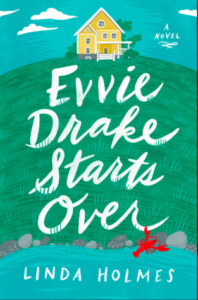 7. Evvie Drake Starts Over by Linda Holmes – I don’t think I was supposed to like Evvie Drake Starts Over. I mean, I don’t think it was written with me—or my demographic—in mind. Evvie Drake Starts Over is a book for women, what some might call Chick Lit (a term I understand, but don’t really like). Even so, I really, really liked it. It is one of the few books that stuck with me months after I read it. That is unusual. One of the things that I like about Evvie Drake Starts Over, and which I admire about a lot of books, is the way the author takes a relatively simple story idea and turns it into a captivating book. I don’t need a plot that contains a convoluted set of circumstances. Maybe it’s that I’m simple-minded, but if you want to impress me, take everyday humdrum life and make it interesting. That’s what Linda Holmes did with Evvie Drake Starts Over. The story centers around Evvie Drake, a woman whose husband has died and who, for the first time in her life, is truly on her own. At times, she navigates her new reality with all the grace of a water buffalo, but through it all, maintains a charm and sense of humor about herself and the world, until she doesn’t. Sometimes, life’s hardships are too much even for Evvie Drake.
7. Evvie Drake Starts Over by Linda Holmes – I don’t think I was supposed to like Evvie Drake Starts Over. I mean, I don’t think it was written with me—or my demographic—in mind. Evvie Drake Starts Over is a book for women, what some might call Chick Lit (a term I understand, but don’t really like). Even so, I really, really liked it. It is one of the few books that stuck with me months after I read it. That is unusual. One of the things that I like about Evvie Drake Starts Over, and which I admire about a lot of books, is the way the author takes a relatively simple story idea and turns it into a captivating book. I don’t need a plot that contains a convoluted set of circumstances. Maybe it’s that I’m simple-minded, but if you want to impress me, take everyday humdrum life and make it interesting. That’s what Linda Holmes did with Evvie Drake Starts Over. The story centers around Evvie Drake, a woman whose husband has died and who, for the first time in her life, is truly on her own. At times, she navigates her new reality with all the grace of a water buffalo, but through it all, maintains a charm and sense of humor about herself and the world, until she doesn’t. Sometimes, life’s hardships are too much even for Evvie Drake.
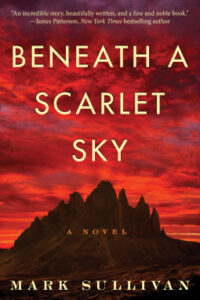 6. Beneath A Scarlett Sky by Mark T. Sullivan – Beneath A Scarlett Sky is based on a true story that took place in Italy during World War II. Pino Lella is a typical Italian teenager at the start of the war. He has no interest in the Nazis or politics. Instead, his concern is first and foremost for the ladies. Although Pino ignores the Nazis that have taken over his town, his parents haven’t. They worry about their son and eventually convince him to join the Nazi army. They think he’ll be safer being in the army, rather than in the resistance. They don’t support the Nazis. In fact, just the opposite. But they want their son to stay safe. Pino lives a double life, escorting Jews out of Italy, across the Alps, to safety, while also serving as the driver for a mysterious Nazi officer. His position as a driver allows him to spy on the Nazis and funnel information to the resistance. His work helps defeat the Nazis, but has dire personal consequences for Pino. Author Mark T. Sullivan does a masterful job of keeping the reader engaged and turning pages. If you enjoy World War II era stories, this is the book for you.
6. Beneath A Scarlett Sky by Mark T. Sullivan – Beneath A Scarlett Sky is based on a true story that took place in Italy during World War II. Pino Lella is a typical Italian teenager at the start of the war. He has no interest in the Nazis or politics. Instead, his concern is first and foremost for the ladies. Although Pino ignores the Nazis that have taken over his town, his parents haven’t. They worry about their son and eventually convince him to join the Nazi army. They think he’ll be safer being in the army, rather than in the resistance. They don’t support the Nazis. In fact, just the opposite. But they want their son to stay safe. Pino lives a double life, escorting Jews out of Italy, across the Alps, to safety, while also serving as the driver for a mysterious Nazi officer. His position as a driver allows him to spy on the Nazis and funnel information to the resistance. His work helps defeat the Nazis, but has dire personal consequences for Pino. Author Mark T. Sullivan does a masterful job of keeping the reader engaged and turning pages. If you enjoy World War II era stories, this is the book for you.
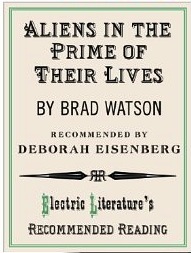 5. Aliens in the Prime of Their Lives by Brad Watson – Brad Watson was a highly respected literary writer who died in 2020 at the all too young age of 64. I had heard a lot of good things about Watson over the years. My friend, Nick Rupert, even studied with Watson at one point, and spoke very highly of him. Until his death, Watson taught creative writing at several different schools, including the University of Alabama, Harvard University, University of West Florida, University of Mississippi, University of California-Irvine, and since 2005, at the University of Wyoming. Sadly, I had never read any of Watson’s work, so I made a point after his death to read one of his most popular short story collections, Aliens in the Prime of Their Lives. The bad news is that I bought just the story, not the story collection by the same name. The good news is that Watson’s writing was every bit as good as I had been told it was. I very much enjoyed the story, and now want to make sure that I read the entire collection. Maybe I can get that done in 2021.
5. Aliens in the Prime of Their Lives by Brad Watson – Brad Watson was a highly respected literary writer who died in 2020 at the all too young age of 64. I had heard a lot of good things about Watson over the years. My friend, Nick Rupert, even studied with Watson at one point, and spoke very highly of him. Until his death, Watson taught creative writing at several different schools, including the University of Alabama, Harvard University, University of West Florida, University of Mississippi, University of California-Irvine, and since 2005, at the University of Wyoming. Sadly, I had never read any of Watson’s work, so I made a point after his death to read one of his most popular short story collections, Aliens in the Prime of Their Lives. The bad news is that I bought just the story, not the story collection by the same name. The good news is that Watson’s writing was every bit as good as I had been told it was. I very much enjoyed the story, and now want to make sure that I read the entire collection. Maybe I can get that done in 2021.
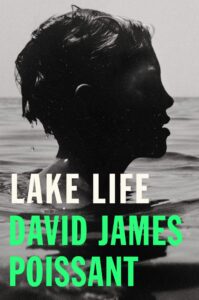
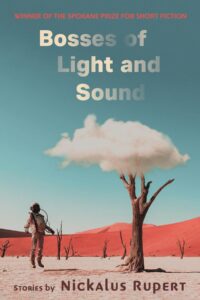 4. (tie) Lake Life by David James Poissant and Bosses of Light and Sound by Nick Rupert – You could say this is a bit of a cop out on my part. Jamie and Nick are both friends and I would feel a little strange claiming one was better than the other. But their place on the list is not a cop out. Both of their books are terrific. Not only is it hard to separate them on the list, it is also difficult to compare them. Lake Life is a fully-realized debut novel. Bosses of Light and Sound is a wonderful short story collection. In fact, I gave input on several of Nick’s stories. He ignored my input, and the collection is better for it. Lake Life follows a dysfunctional family as they navigate the potential sale of their beloved family lake house. The characters are richly rendered, and Jamie describes their flaws and struggles with wide open eyes and a healthy dose of compassion. He does a masterful job of weaving together disparate stories into a wonderful novel. In Bosses of Light and Sound, Nick gives us quirky characters living lives of largely unseen struggles. Whether it’s an older woman seeking a sort of cockeyed redemption at a miniature golf course, a potentially suicidal man who is the unofficial savior of others wanting to commit suicide, or a pair of friends reliving a night they’d rather forget as a sort of tribute/apology to their dead compatriot, Nick offers his characters in all their flawed, all-too-human glory. Bosses of Light and Sound is Nick’s first publication, but it certainly won’t be his last.
4. (tie) Lake Life by David James Poissant and Bosses of Light and Sound by Nick Rupert – You could say this is a bit of a cop out on my part. Jamie and Nick are both friends and I would feel a little strange claiming one was better than the other. But their place on the list is not a cop out. Both of their books are terrific. Not only is it hard to separate them on the list, it is also difficult to compare them. Lake Life is a fully-realized debut novel. Bosses of Light and Sound is a wonderful short story collection. In fact, I gave input on several of Nick’s stories. He ignored my input, and the collection is better for it. Lake Life follows a dysfunctional family as they navigate the potential sale of their beloved family lake house. The characters are richly rendered, and Jamie describes their flaws and struggles with wide open eyes and a healthy dose of compassion. He does a masterful job of weaving together disparate stories into a wonderful novel. In Bosses of Light and Sound, Nick gives us quirky characters living lives of largely unseen struggles. Whether it’s an older woman seeking a sort of cockeyed redemption at a miniature golf course, a potentially suicidal man who is the unofficial savior of others wanting to commit suicide, or a pair of friends reliving a night they’d rather forget as a sort of tribute/apology to their dead compatriot, Nick offers his characters in all their flawed, all-too-human glory. Bosses of Light and Sound is Nick’s first publication, but it certainly won’t be his last.
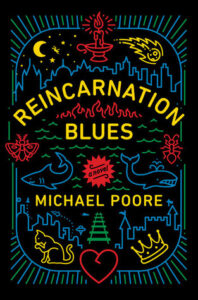 3. Reincarnation Blues by Michael Poore – Here’s the deal: You get to live up to 2,000 lives in order to perfect yourself and become enlightened. It usually doesn’t take all 2,000, but if you need that many, you can have that many. But no more. Milo, the protagonist, is getting dangerously close to having lived 2,000 lives. He’s down to just a few, and he doesn’t seem to be getting any closer to perfection. With the help of Suzy, a sort-of-god and sexual partner, Milo makes his way through his final few lives, learning along the way what it really means to live a life of sacrifice and service. Reincarnation Blues is not for everyone. At times it is confusing and chaotic, skipping around from life to life, never stopping to explain how one life impacts another. But if you’re willing to open your mind and do a little of the heavy lifting, Reincarnation Blues is a terrific, deeply philosophical novel.
3. Reincarnation Blues by Michael Poore – Here’s the deal: You get to live up to 2,000 lives in order to perfect yourself and become enlightened. It usually doesn’t take all 2,000, but if you need that many, you can have that many. But no more. Milo, the protagonist, is getting dangerously close to having lived 2,000 lives. He’s down to just a few, and he doesn’t seem to be getting any closer to perfection. With the help of Suzy, a sort-of-god and sexual partner, Milo makes his way through his final few lives, learning along the way what it really means to live a life of sacrifice and service. Reincarnation Blues is not for everyone. At times it is confusing and chaotic, skipping around from life to life, never stopping to explain how one life impacts another. But if you’re willing to open your mind and do a little of the heavy lifting, Reincarnation Blues is a terrific, deeply philosophical novel.
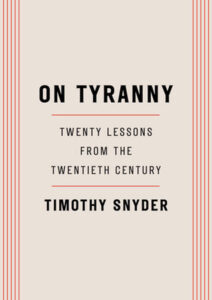 2. On Tyranny: Twenty Lessons from the Twentieth Century by Timothy Snyder – I mentioned earlier that I spent a lot of time reading nonfiction this year, especially as it related to Donald Trump. On Tyranny is not specifically about Trump, but the book did an excellent job of pointing out the authoritarian action he was taking and gave the reader a roadmap to follow to avoid authoritarianism and fascism in the future. Snyder is a history professor at Yale University who specializes in the rise of fascist regimes. His insights, while not taking aim directly at Trump and his administration, laid out a strong, detailed case that what we saw during Trump’s four years in office was a progressively strengthening authoritarian administration hellbent on betraying our democracy for their own political gain. I turned to Snyder’s book several times in my own political writing to better explain what we were witnessing. I found On Tyranny invaluable as a resource, and as a ray of hope that we would find our way out of one of the darkest periods in our nation’s history.
2. On Tyranny: Twenty Lessons from the Twentieth Century by Timothy Snyder – I mentioned earlier that I spent a lot of time reading nonfiction this year, especially as it related to Donald Trump. On Tyranny is not specifically about Trump, but the book did an excellent job of pointing out the authoritarian action he was taking and gave the reader a roadmap to follow to avoid authoritarianism and fascism in the future. Snyder is a history professor at Yale University who specializes in the rise of fascist regimes. His insights, while not taking aim directly at Trump and his administration, laid out a strong, detailed case that what we saw during Trump’s four years in office was a progressively strengthening authoritarian administration hellbent on betraying our democracy for their own political gain. I turned to Snyder’s book several times in my own political writing to better explain what we were witnessing. I found On Tyranny invaluable as a resource, and as a ray of hope that we would find our way out of one of the darkest periods in our nation’s history.
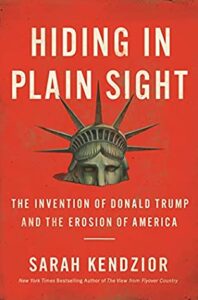 1. Hiding in Plain Sight: The Invention of Donald Trump and the Erosion of America by Sarah Kendzior – The best book I read all year was Hiding in Plain Sight by Sarah Kendzior. Unlike On Tyranny, Hiding in Plain Sight took aim directly at Donald Trump and explained, in no uncertain terms, what he intended to do to the United States. Kendzior was not alone in her warnings about Trump, but she was on the record long before others sounded the alarm, and she was as prescient as anyone about what Trump held in store for our country. One thing that separated Kendzior from other writers is that, unlike those other writers, she was not ensconced in Washington D.C politics. Kendzior wrote from her home in St. Louis where she had a clearer view of what was happening in the heart of the country. Too often, we forget that, while our politics often emanate from Washington, lives of ordinary Americans are lived outside the beltway. From her perch in the Midwest, Kendzior saw the shift to authoritarianism taking place, and understood the danger of such a rise. She also identified early on what kind of harm someone like Donald Trump could do with this burgeoning authoritarian bent taking hold around the country. Hiding in Plain Sight is a must-read for anyone who wants to not only understand Trump, but also understand the movement that brought him to power and empowered him to threaten our democracy.
1. Hiding in Plain Sight: The Invention of Donald Trump and the Erosion of America by Sarah Kendzior – The best book I read all year was Hiding in Plain Sight by Sarah Kendzior. Unlike On Tyranny, Hiding in Plain Sight took aim directly at Donald Trump and explained, in no uncertain terms, what he intended to do to the United States. Kendzior was not alone in her warnings about Trump, but she was on the record long before others sounded the alarm, and she was as prescient as anyone about what Trump held in store for our country. One thing that separated Kendzior from other writers is that, unlike those other writers, she was not ensconced in Washington D.C politics. Kendzior wrote from her home in St. Louis where she had a clearer view of what was happening in the heart of the country. Too often, we forget that, while our politics often emanate from Washington, lives of ordinary Americans are lived outside the beltway. From her perch in the Midwest, Kendzior saw the shift to authoritarianism taking place, and understood the danger of such a rise. She also identified early on what kind of harm someone like Donald Trump could do with this burgeoning authoritarian bent taking hold around the country. Hiding in Plain Sight is a must-read for anyone who wants to not only understand Trump, but also understand the movement that brought him to power and empowered him to threaten our democracy.
